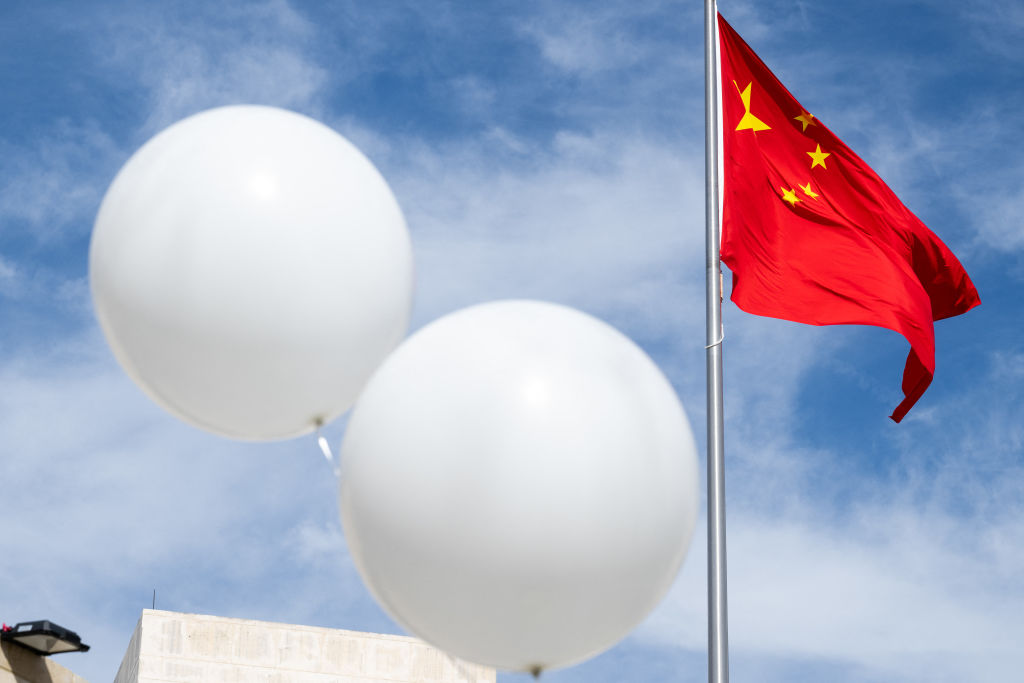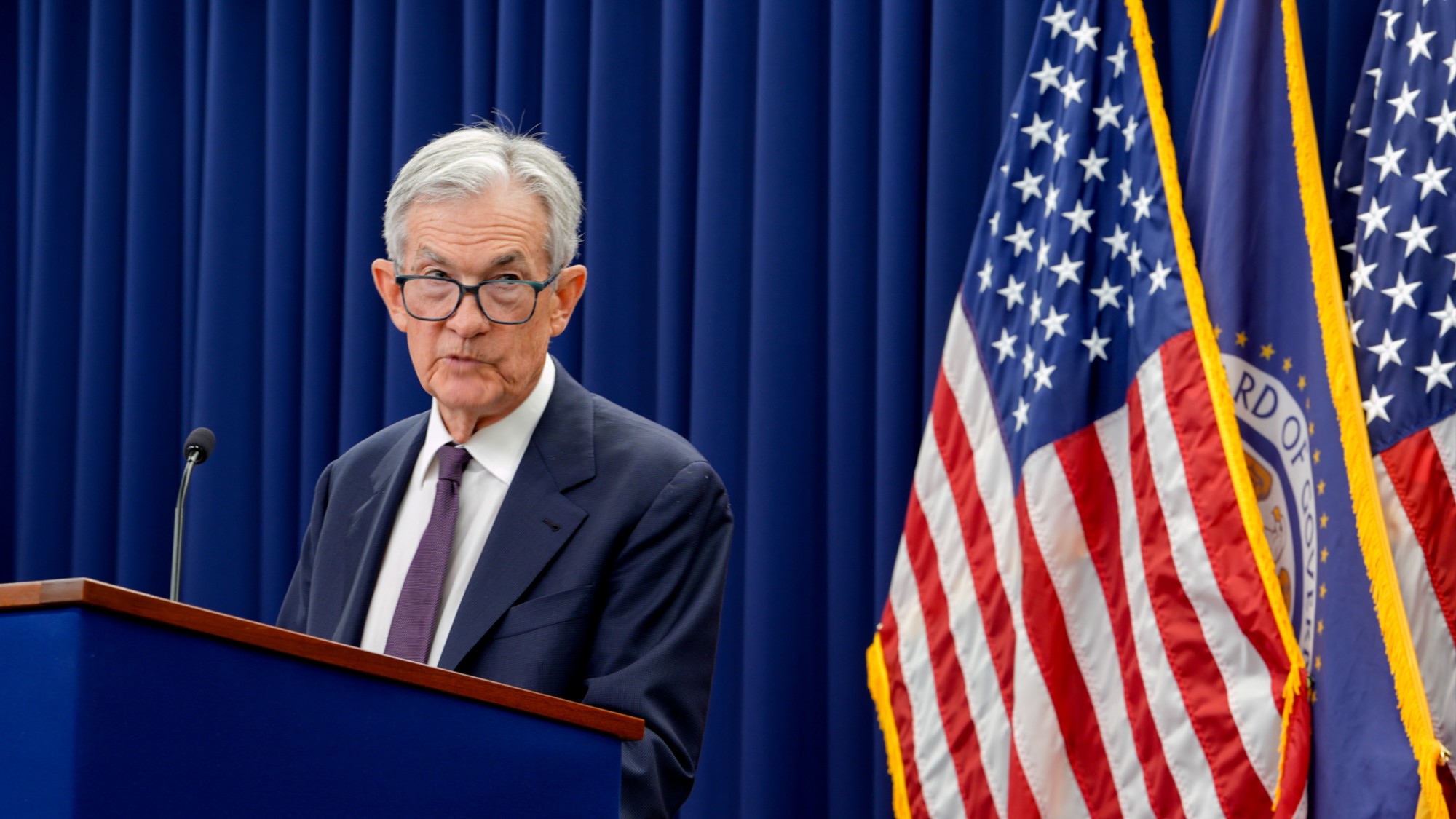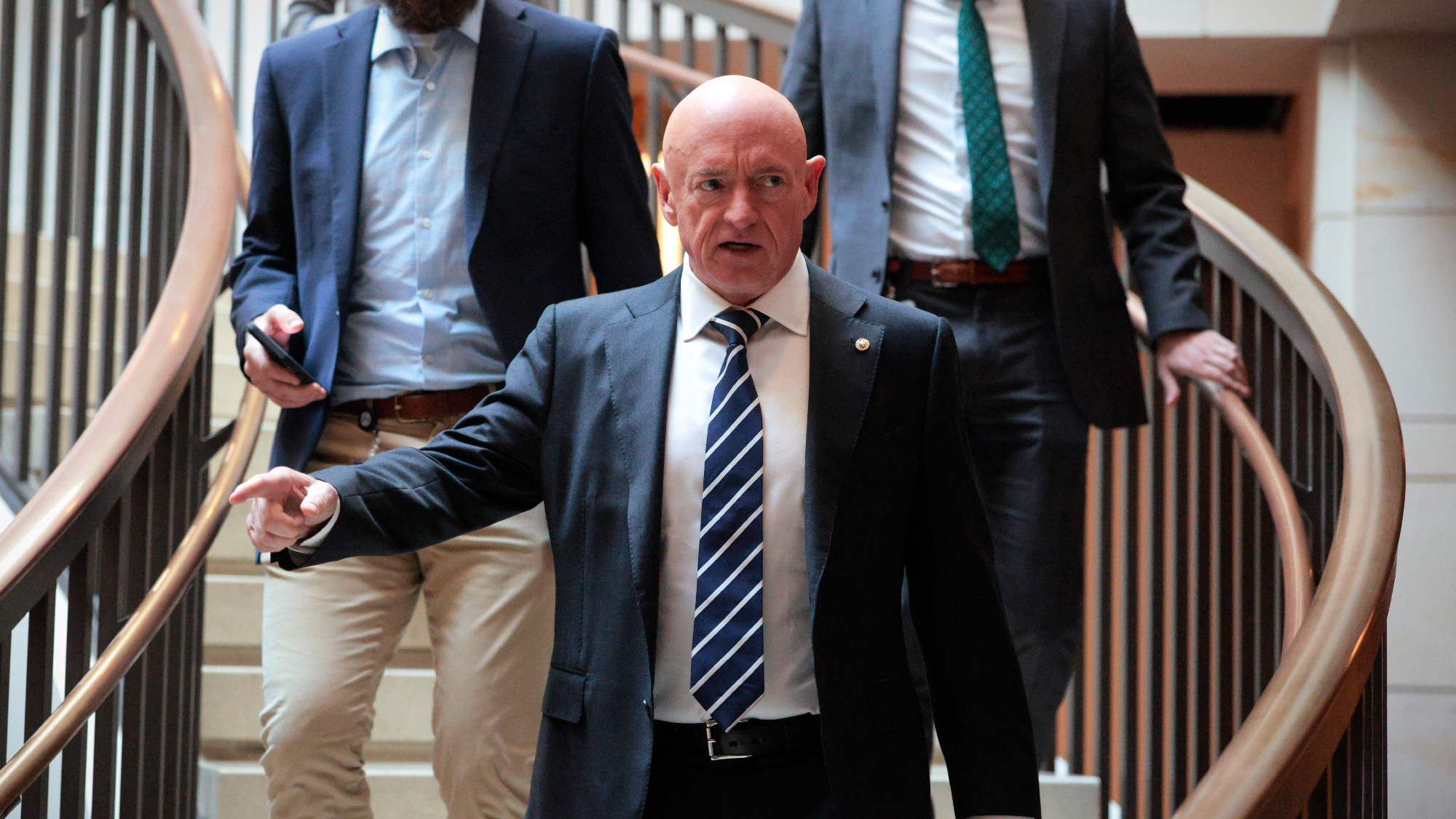Biden expected to publicly address Chinese spy balloon, unidentified objects on Thursday


A free daily email with the biggest news stories of the day – and the best features from TheWeek.com
You are now subscribed
Your newsletter sign-up was successful
President Biden will make public remarks as early as Thursday about the Chinese surveillance balloon and three other objects shot down over the U.S. and Canada in the past two weeks, The Washington Post reports. Biden is also expected to discuss the new guidelines on handling unmanned, unidentified airborne objects the White House is developing.
The U.S. is still examining debris recovered from what it says was a Chinese spy balloon that a U.S. F-22 shot down off the coast of South Carolina on Feb. 4, and U.S. and Canadian teams are still searching for the remains of three aerial objects shot down over the U.S. and Canada Feb. 10-12. U.S. officials told The New York Times on Wednesday that they now believe the three objects were benign weather or research balloons that had stopped working — floating junk — and the Chinese spy balloon blew off course from its mission to spy on U.S. military installations in Guam and Hawaii.
The debris recovered from the spy balloon includes an antenna array capable of collecting electronic signals and sending encrypted messages to Chinese satellites, a camera, and a self-destruct mechanism that either malfunctioned or wasn't activated by its Chinese operators, the Times reports. "U.S. officials say Chinese officials likely wanted to avoid activating the mechanism when the balloon was over land, for fear that any injuries or damage it might cause would escalate the crisis quickly. Chinese officials probably also had the ability to deflate the balloon and bring it to the ground, but wanted to try to prevent the Americans from acquiring the surveillance equipment."
The Week
Escape your echo chamber. Get the facts behind the news, plus analysis from multiple perspectives.

Sign up for The Week's Free Newsletters
From our morning news briefing to a weekly Good News Newsletter, get the best of The Week delivered directly to your inbox.
From our morning news briefing to a weekly Good News Newsletter, get the best of The Week delivered directly to your inbox.
U.S. officials are so far unimpressed with what they have discovered about the spy balloon, though they say China's spy balloon program is still in the testing phase, the Times reports. Some analysts speculate that the balloons are meant to supplement China's spy satellites and act as a backup if the satellites are destroyed or malfunction. "They have 260 intelligence satellites in orbit," John Culver, a former U.S. intelligence analyst on China, tells the Times. "This can augment that capability."
And China feels pressure to keep up with the U.S., which "typically flies hundreds, perhaps more than a thousand, reconnaissance aircraft off their coast every year," Culver adds. "They're frustrated they can't fight back. ... This is a program that has political value to them and has wartime value."
A free daily email with the biggest news stories of the day – and the best features from TheWeek.com
Peter has worked as a news and culture writer and editor at The Week since the site's launch in 2008. He covers politics, world affairs, religion and cultural currents. His journalism career began as a copy editor at a financial newswire and has included editorial positions at The New York Times Magazine, Facts on File, and Oregon State University.
-
 5 cinematic cartoons about Bezos betting big on 'Melania'
5 cinematic cartoons about Bezos betting big on 'Melania'Cartoons Artists take on a girlboss, a fetching newspaper, and more
-
 The fall of the generals: China’s military purge
The fall of the generals: China’s military purgeIn the Spotlight Xi Jinping’s extraordinary removal of senior general proves that no-one is safe from anti-corruption drive that has investigated millions
-
 Why the Gorton and Denton by-election is a ‘Frankenstein’s monster’
Why the Gorton and Denton by-election is a ‘Frankenstein’s monster’Talking Point Reform and the Greens have the Labour seat in their sights, but the constituency’s complex demographics make messaging tricky
-
 The ‘mad king’: has Trump finally lost it?
The ‘mad king’: has Trump finally lost it?Talking Point Rambling speeches, wind turbine obsession, and an ‘unhinged’ letter to Norway’s prime minister have caused concern whether the rest of his term is ‘sustainable’
-
 Trump sues IRS for $10B over tax record leaks
Trump sues IRS for $10B over tax record leaksSpeed Read The president is claiming ‘reputational and financial harm’ from leaks of his tax information between 2018 and 2020
-
 Trump, Senate Democrats reach DHS funding deal
Trump, Senate Democrats reach DHS funding dealSpeed Read The deal will fund most of the government through September and the Department of Homeland Security for two weeks
-
 Fed holds rates steady, bucking Trump pressure
Fed holds rates steady, bucking Trump pressureSpeed Read The Federal Reserve voted to keep its benchmark interest rate unchanged
-
 Judge slams ICE violations amid growing backlash
Judge slams ICE violations amid growing backlashSpeed Read ‘ICE is not a law unto itself,’ said a federal judge after the agency violated at least 96 court orders
-
 Rep. Ilhan Omar attacked with unknown liquid
Rep. Ilhan Omar attacked with unknown liquidSpeed Read This ‘small agitator isn’t going to intimidate me from doing my work’
-
 Democrats pledge Noem impeachment if not fired
Democrats pledge Noem impeachment if not firedSpeed Read Trump is publicly defending the Homeland Security secretary
-
 Hegseth moves to demote Sen. Kelly over video
Hegseth moves to demote Sen. Kelly over videospeed read Retired Navy fighter pilot Mark Kelly appeared in a video reminding military service members that they can ‘refuse illegal orders’
